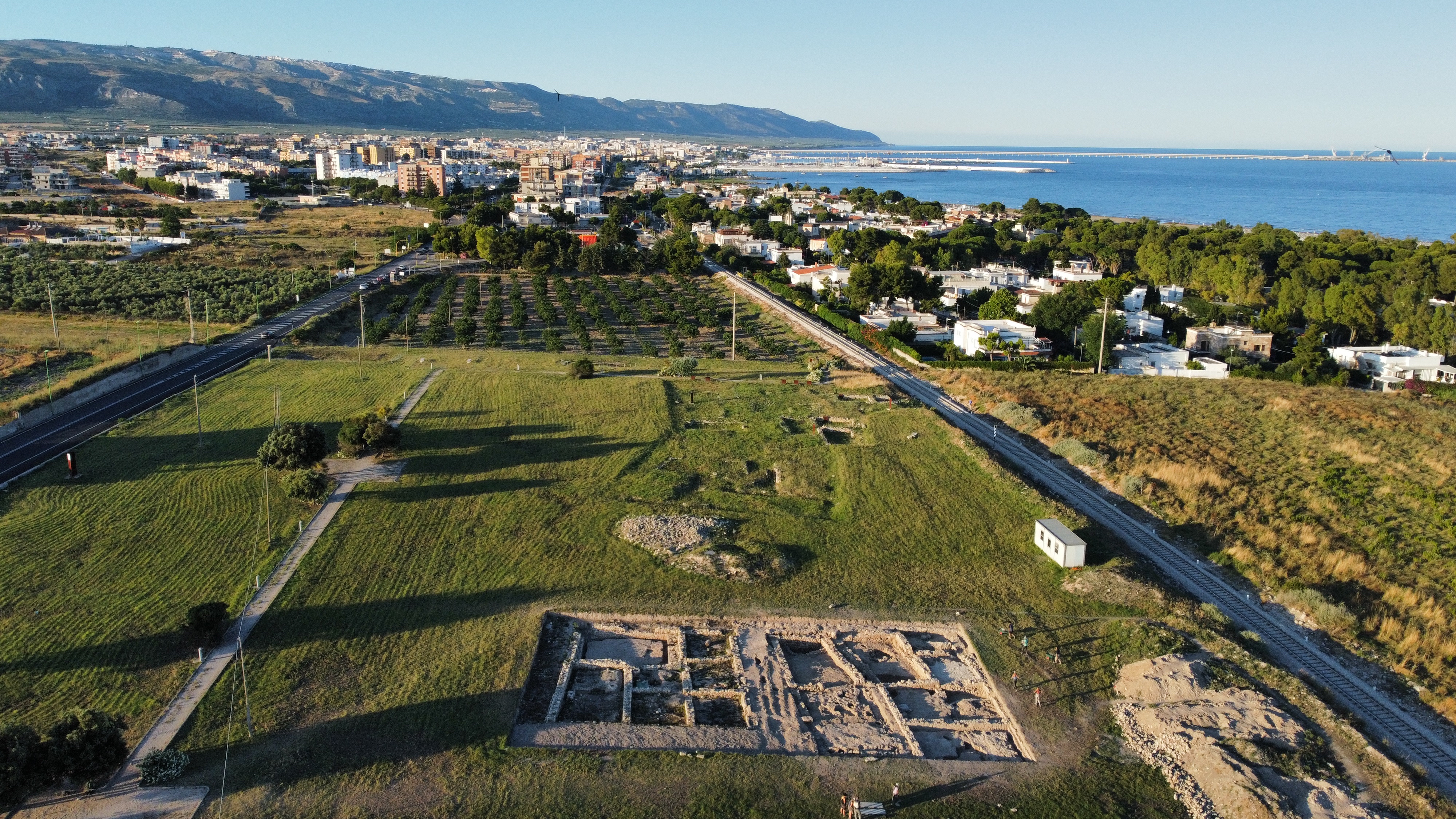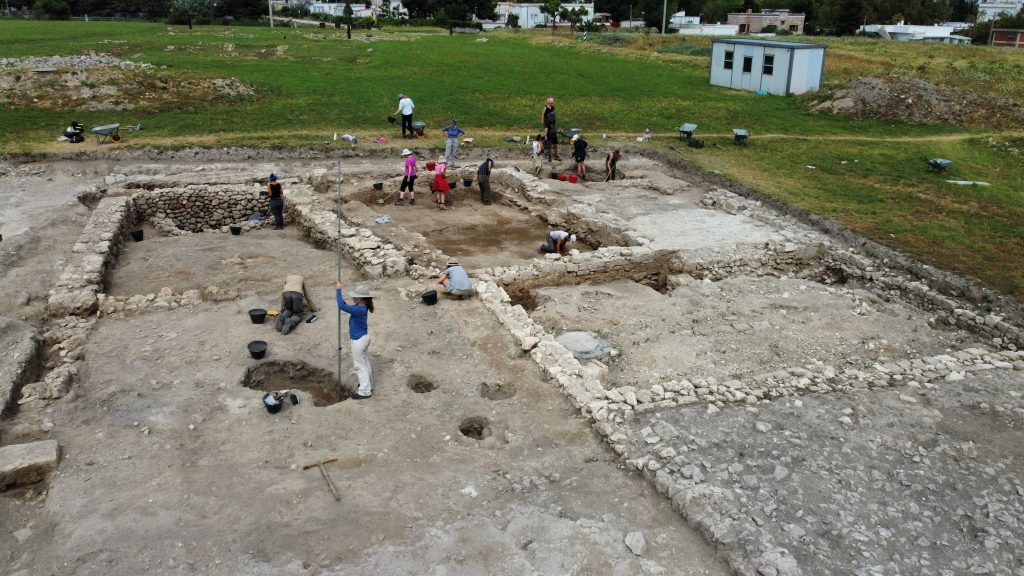Fieldwork
This listing expired on May 1, 2025. Please contact darian.totten@mcgill.ca for any updated information.


Location: 71043 Manfredonia, Province of Foggia, Italy
Season: May 18, 2025 to June 28, 2025
Application Deadline: March 15, 2025
Deadline Type: Exact Date
Discount for AIA members: No
Program Type:
Field School
RPA Certified:
No
Affiliation:
McGill University and University of Foggia
Project Director:
Darian Marie Totten and Roberto Goffredo
Project Description:
The Excavating Sipontum Project started in summer 2022. We investigate the long-term urban evolution of Sipontum, from its Roman founding to its final days as a medieval port town (tentatively dated to sometime in the 13th c.) to write an interwoven history of human-environment relationships in this town. Situated in Apulia (Southern Italy), in the shadow of the Monte Gargano, Sipontum’s fortuitous position made it a great connector, to the Adriatic and Mediterranean Seas, and eventually was a prominent player in the medieval pilgrimage routes through Europe to the Holy Land.
Situated at the interior of a state-owned archaeological park, this site has largely remained unexcavated. We hope to recover the details of both ancient and medieval urbanism: the day-to-day residues of life on a minor port town in an active sea. In our first year of excavation, we have recovered the remains of urban life dating to the Medieval period; future seasons aim to intercept Late Antique and Roman layers and architectural remains.
Our long-term approach also lays emphasis on evidence of change or transition through time. Sipontum’s position implies that it also needed to manage the likely precarious and changing conditions of its lagoon, the Lago Salso, that afforded access to rich marine resources, while also potentially causing environmental challenges such as malaria infestation and swamping.
Period(s) of Occupation: Roman, Late Antique, Medieval
Notes:
This excavation is run as a field school to train students with little to no experience in archaeology how to dig, collect artifacts, record site features, and perform laboratory methods associated with archaeological fieldwork. There are weekly seminars on assigned readings where students will discuss how we move from archaeological excavation to archaeological interpretation. Topics include: field methods; artifacts and interpretation; ports in the Roman and Medieval worlds; economy and society in the Roman empire and Medieval period; and the evolution city life. Laboratory work in the late afternoons teaches students to wash and sort the ceramics found on site. No prior field experience or coursework in Classics is required.
Project Size: 1-24 participants
Minimum Length of Stay for Volunteers: 6 weeks
Minimum Age: 18
Experience Required: No experience required
Room and Board Arrangements:
A program fee of CAD$3013.46 covers expenses for 6-weeks lodging, transport to and from the site from the dormitory. Meals are covered on the following days: M-F breakfast, mid-morning snack, and lunch; M-Th dinners. We reside in a dormitory in Manfredonia with shared rooms and bathrooms, not far from the site. Lunch is eaten on site; breakfast in a kitchen in the dormitory; dinner in a local restaurant. Airfare is not included in this cost, nor is the train/bus fare required to get from the airport to Manfredonia. Students should anticipate to add this cost to the program fee.
Students often take advantage of the fortuitous position in Southern Italy to travel on the weekends, for which reason dinner is not included in Fridays, nor any meals Sat-Sun. The instructor makes herself available for a tour of select sites the Bay of Naples one weekend at the students’ choosing. This travel comes with added cost that is managed by the students individually.
Academic Credit:
Students register in the summer term at McGill for a three credit course. Cost of these credits depends on the student’s residency (Quebec, Canadian, or international). Information on the fee structure can be found here:
https://www.mcgill.ca/student-accounts/tuition-fees/summer-studies-tuition-and-fees-2025
(Be sure to look at the sidebar for “undergraduate fees” for undergraduate students).
The course listed on the transcript is CLAS 349: Archaeology Fieldwork Italy. Registration is required.
Darian Marie Totten
855 Sherbrooke Street West
Montreal
QC
H3A2T7
Canada
Phone: (514) 398-4912
The AIA is North America's largest and oldest nonprofit organization dedicated to archaeology. The Institute advances awareness, education, fieldwork, preservation, publication, and research of archaeological sites and cultural heritage throughout the world. Your contribution makes a difference.
Notifications